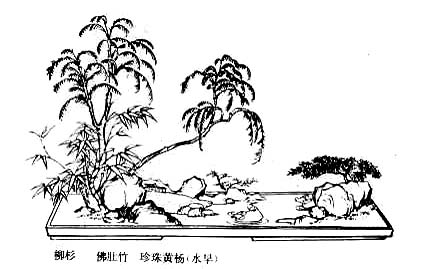...
易
經
Yi Jing  – I Ching, the Book of Changes
– I Ching, the Book of Changes
This famous system of 64 hexagrams plus their commentaries and transformations is at the root of Chinese thought. Tr. Wilhelm (en, fr).
| 01¬02 03×04 05×06 07×08 09-10 11×12 13×14 15-16 17-18 19-20 21-22 23-24 25-26 27¬28 29¬30 31-32 33-34 35×36 37-38 39-40 41-42 43-44 45-46 47-48 49-50 51-52 53-54 55-56 57-58 59-60 61¬62 63¬64 |
Trigrams
 | 乾 | Ch´ien, the Creative | strong | heaven | father |
 | 坤 | K´un, the Receptive | devoted yielding | earth | mother |
 | 震 | Chên, the Arousing | inciting movement | thunder | first son |
 | 坎 | K´an, the Abysmal | dangerous | water | second son |
 | 艮 | Kên, Keeping Still | resting | mountain | third son |
 | 巽 | Sun, the Gentle | penetrating | wind, wood | first daughter |
 | 離 | Li, the Clinging | light-giving | fire | second daughter |
 | 兌 | Tui, the Joyous | joyful | lake | third daughter |
Hexagrams

I Ching, the Book of Changes – Yi Jing – Chinese on/off – Français/English
Alias Yijing, I Ching, Yi King, I Ging, Zhou yi, The Classic of Changes (Lynn), The Elemental Changes (Nylan), Le Livre des Changements (Javary), Das Buch der Wandlung.
The Book of Odes, The Analects, Great Learning, Doctrine of the Mean, Three-characters book, The Book of Changes, The Way and its Power, 300 Tang Poems, The Art of War, Thirty-Six Strategies
Welcome, help, notes, introduction, table.
Index – Contact – Top
